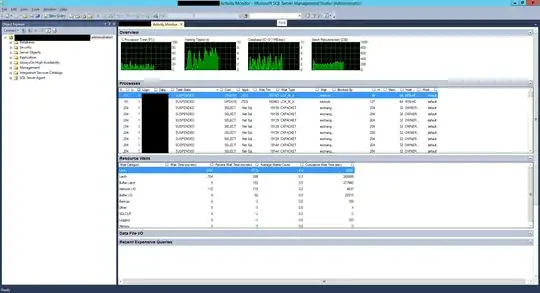I have a Microsoft Sql Server that handles a moderate amout of traffic for a company software suite made up of multiple clients in java and c#.
It is getting overloaded with 'Suspended' queries. They eventually go through, but some are timing out (especially the writes). The queries are mostly reads.
Is there any way to speed this up, or fix it some other way?
Here is a picture of my Activity Monitor to show what I'm talking about:

Side note: We have planned on moving to MySql for some time now. Would that help at all? I know MS Sql is strong but with it's default of Read-Committed, could that be hurting anything?